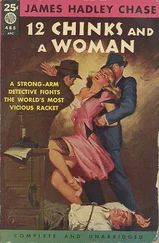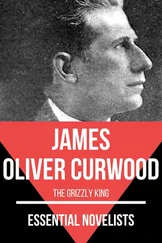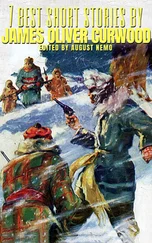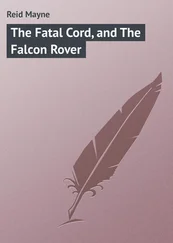James De Mille
Cord and Creese
Quality of Life, Freedom, More time with the ones you Love.
Visit our website: LYFREEDOM.COM
Chapter
1
THE LETTER FROM BEYOND THE SEA
On the morning of July 21, 1840, the Daily News announced the arrival of the ship Rival at Sydney, New South Wales. As ocean steam navigation had not yet extended so far, the advent of this ship with the English mail created the usual excitement. An eager crowd beset the post-office, waiting for the delivery of the mail; and little knots at the street corners were busily discussing the latest hints at news which had been gathered from papers brought ashore by the officers or passengers.
At the lower end of King Street was a large warehouse, with an office at the upper extremity, over which was a new sign, which showed with newly gilded letters the words:
COMPTON & BRANDON.
The general appearance of the warehouse showed that Messrs. Compton and Brandon were probably commission merchants, general agents, or something of that sort.
On the morning mentioned two men were in the inner office of this warehouse. One was an elderly gentleman, with a kind, benevolent aspect, the senior partner of the firm. The other was the junior partner, and in every respect presented a marked contrast to his companion.
He had a face of rather unusual appearance, and an air which in England is usually considered foreign. His features were regular—a straight nose, wide brow, thin lips, and square, massive chin. His complexion was olive, and his eyes were of a dark hazel color, with a peculiarity about them which is not usually seen in the eye of the Teutonic or Celtic race, but is sometimes found among the people of the south of Europe, or in the East. It is difficult to find a name for this peculiarity. It may be seen sometimes in the gipsy; sometimes in the more successful among those who call themselves "spiritual mediums," or among the more powerful mesmerizers. Such an eye belonged to Napoleon Bonaparte, whose glance at times could make the boldest and greatest among his marshals quail. What is it? Magnetism? Or the revelation of the soul? Or what?
In this man there were other things which gave him the look of the great Napoleon. The contour of feature was the same: and on his brow, broad and massive, there might be seen those grand shadows with which French artists love to glorify the Emperor. Yet in addition to this he had that same serene immobility of countenance which characterized the other, which could serve as an impenetrable mask to hide even the intensest person.
There was also about this man a certain aristocratic air and grace of attitude, or of manner, which seemed to show lofty birth and gentle breeding, the mysterious index to good blood or high training. How such a man could have happened to fill the position of junior partner in a commission business was certainly a problem not easily solved. There he was, however, a man in appearance out of place, yet in reality able to fill that place with success; a man, in fact, whose resolute will enabled him to enforce success in any calling of life to which either outside circumstances or his own personal desires might invite him.
"The mail ought to be open by this time," said Brandon, indifferently, looking at his watch. "I am somewhat curious to see how things are looking. I noticed quotations of wool rather higher than by last mail. If the papers are correct which I saw then we ought to do very well by that last cargo."
Mr. Compton smiled.
"Well, Brandon," said he, "if it is so it will show that you are right. You anticipated a rise about this time, you know. You certainly have a remarkable forecast about the chances of business."
"I don't think there is much forecast," said Brandon, with a smile. "It was only the most ordinary calculation made from the well-known fact that the exportation this year had been slight. But there comes Hedley now," he continued, moving his head a little to one side so as to look up the street. "The letters will soon show us all."
Mr. Compton looked out in the direction which Brandon indicated and saw the clerk approaching. He then settled himself back in his chair, put his hands in his pockets, threw one leg over the other, and began whistling a tune with the air of a man who was so entirely prosperous and contented that no news whether good or evil could greatly affect his fortunes.
In a short time the clerk entered the inner office and, laying the letters down upon the table nearest Mr. Compton, he withdrew.
Mr. Compton took up the letters one by one and read the addresses, while Brandon looked carelessly on. There were ten or twelve of them, all of which, except one, were addressed to the firm. This one Mr. Compton selected from among the others, and reaching it out in his hand said:
"This is for you, Mr. Brandon."
"For me?" repeated Brandon, with marked surprise; and taking the letter he looked at the address with eager curiosity.
The address was simply as follows:
Louis Brandon, Sydney, New South Wales.
The letters were irregular and loosely formed, as though written by a tremulous hand—such letters as old men form when the muscles have become relaxed.
Mr. Compton went on opening the letters of the firm without taking any further notice of his partner. The latter sat for some time looking at the letter without venturing to open it. He held it in both hands, and looked fixedly at that address as though from the address itself he was trying to extort some meaning.
He held it thus in both hands looking fixedly at it, with his head bent forward. Had Mr. Compton thought of taking a look at his usually impassive companion, he would have been surprised at the change which had taken place in him at the mere sight of that tremulous handwriting. For in that he had read grief, misfortune, perhaps death; and as he sat there, pausing before he dared to break the seal, the contents of the letter had already been conjectured.
Gloom therefore unutterable gathered upon his face; his features fixed themselves into such rigidity of grief that they became more expressive than if they had been distorted by passionate emotions; and over his brow collected cloud upon cloud, which deepened and darkened every instant till they overshadowed all; and his face in its statuesque fixedness resembled nothing so much as that which the artist gives to Napoleon at the crisis hour of Waterloo, when the Guard has recoiled from its last charge, and from that Imperial face in its fixed agony the soul itself seems to cry, "Lost!" "Lost!"
Yet it was only for a few minutes. Hastily subduing his feeling Brandon rose, and clutching the letter in his hand as though it were too precious to be trusted to his pocket, he quietly left the office and the warehouse and walked up the street.
He walked on rapidly until he reached a large building which bore the sign "Australian Hotel." Here he entered, and walked up stairs to a room, and locked himself in. Then when alone in his own apartments he ventured to open the letter.
The paper was poor and mean; the handwriting, like that of the address, was tremulous, and in many places quite illegible; the ink was pale; and the whole appearance of the letter seemed to indicate poverty and weakness on the part of the writer. By a very natural impulse Brandon hesitated before beginning to read, and took in all these things with a quick glance.
At last he nerved himself to the task and began to read.
This was the letter.
"Brandon, March 10, 1846.
"My dear Boy,—These are the last words which you will ever hear from your father. I am dying, my dear boy, and dying of a broken heart; but where I am dying I am afraid to tell you. That bitterness I leave for you to find out some day for yourself. In poverty unspeakable, in anguish that I pray you may never know, I turn to you after a silence of years, and my first word is to implore your forgiveness. I know my noble boy that you grant it, and it is enough for me to ask it. After asking this I can die content on that score.
Читать дальше












